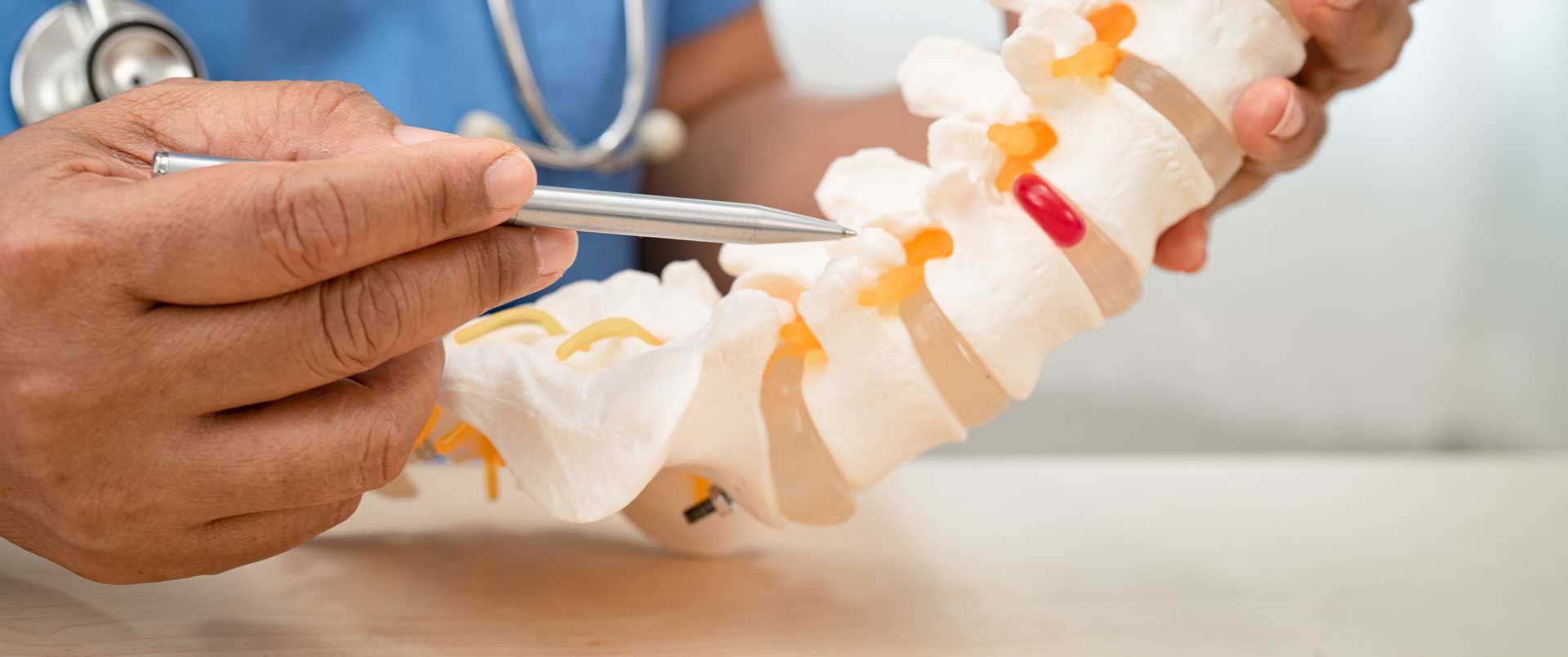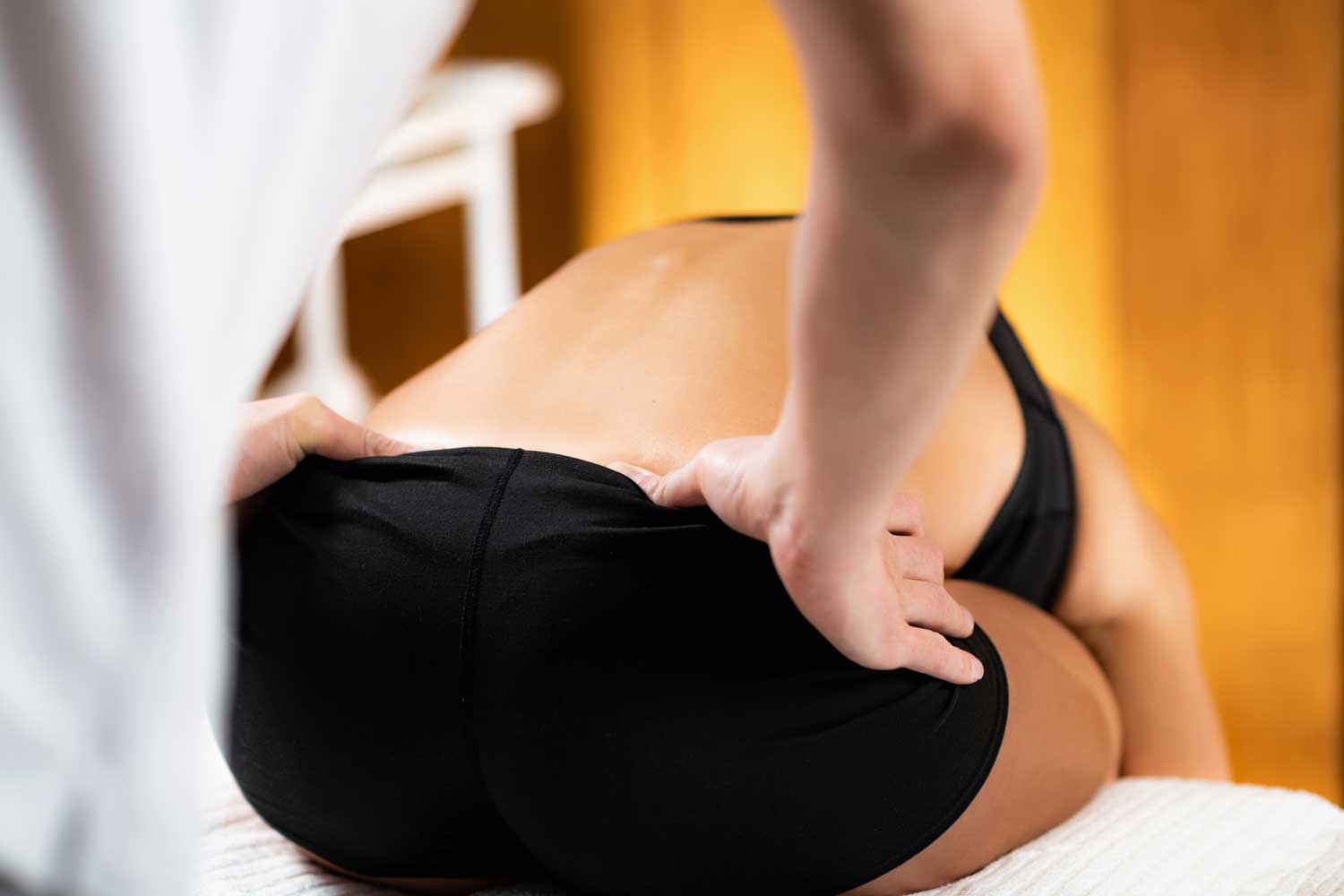Discover effective treatment for slipped disc at MHV Clinic. Learn about expert osteopathy, chiropractic care, and tailored treatment plans for lasting relief. Get professional guidance and start your journey to recovery today.

A slipped disc, often misunderstood and sometimes misnamed as a “herniated disc,” can significantly impact your quality of life. At MHV Clinic, our expert team is committed to providing comprehensive care that addresses symptoms of disc-related issues and their underlying causes. In this blog post, we explore effective treatments for slipped discs, offer insights into osteopathy and chiropractic care, and share how our integrated approach can pave the way for long-term relief and improved spinal health.
What Is a Slipped Disc?
A slipped disc occurs when one of the intervertebral discs—cushions between the vertebrae—protrudes from its normal boundary. This condition can result from age-related degeneration, injury, or repetitive strain. When the disc material presses on surrounding nerves, it can cause pain, numbness, or weakness, depending on the location and severity of the slip.
Intervertebral discs comprise a soft, gel-like center (nucleus pulposus) and a more rigid outer layer (annulus fibrosus). Over time, or after significant trauma, the annulus fibrosus can weaken, allowing the nucleus pulposus to bulge or leak out. While “slipped disc” is commonly used, many experts prefer “herniated disc” to more accurately describe the condition.
The Anatomy and Function of the Spine
The human spine is a complex structure that supports the body’s weight, facilitates movement, and protects the spinal cord. Each disc acts as a shock absorber between the vertebrae. When one of these discs is compromised, it can lead to:
Understanding this anatomy is essential for appreciating how various treatments—ranging from manual therapies to exercise—can help alleviate symptoms and restore function.
Recognising the Symptoms
The symptoms of a slipped disc can vary widely. Some individuals experience only mild discomfort, while others face debilitating pain that affects daily activities. Common symptoms include:
Diagnostic Techniques
Accurate diagnosis is critical for effective treatment. The process typically begins with a detailed clinical history and physical examination. Your healthcare provider may also recommend:
It is important to note that while imaging studies can reveal the extent of disc herniation, the correlation between imaging findings and symptoms is not always direct. Therefore, treatment decisions are typically based on a combination of clinical evaluation and diagnostic imaging.
For many patients, non-surgical treatments provide significant relief and improved quality of life without the risks associated with surgery. MHV Clinic believes in a conservative, evidence-based approach tailored to the individual’s needs.
Pain Management and Medication
In the acute phase, managing pain and inflammation is paramount. Common strategies include:
Physical Therapy and Exercise
Physical therapy is a cornerstone of non-surgical treatment. A personalised exercise program can:
Lifestyle Modifications
In addition to targeted therapy, lifestyle modifications play a crucial role in recovery and prevention:

What Is Osteopathy?
Osteopathy is a holistic approach to healthcare that emphasises the interrelationship between structure and function in the body. Osteopaths use manual techniques to diagnose, treat, and prevent musculoskeletal issues. Their approach is rooted in the belief that the body can heal itself when properly supported.
Osteopathic Techniques for Slipped Disc Relief
At MHV Clinic, our osteopathic practitioners apply various techniques to restore balance and promote healing. These techniques may include:
Benefits of Osteopathy
The benefits of osteopathic treatment for a slipped disc include:
The personalised nature of osteopathic care means that each treatment plan is tailored to the patient’s specific symptoms, lifestyle, and overall health goals.
An Overview of Chiropractic Treatment
Chiropractic care is another popular non-surgical approach to managing slipped discs. Chiropractors specialise in diagnosing and treating neuromuscular disorders, with a strong focus on manual adjustment techniques.
How Chiropractic Care Works
Chiropractic treatment for a slipped disc often involves:
Safety and Considerations
While many patients find significant relief with chiropractic care, it is essential to consider the following:
The integrated approach at MHV Clinic ensures that chiropractic care is carefully tailored to each patient’s needs and monitored continuously to ensure safety and effectiveness.
Similarities and Differences
Both osteopathy and chiropractic care offer non-invasive methods to treat a slipped disc, but they differ in philosophy and technique:
Integrated Treatment Strategies
At MHV Clinic, we recognise that each patient’s journey is unique. Our interdisciplinary team works together to create a comprehensive treatment plan that may integrate osteopathy and chiropractic care elements. This approach ensures:

Our Patient-Centered Model
At MHV Clinic, our approach to treating a slipped disc is grounded in patient-centered care. We start by conducting a comprehensive assessment that includes:
This thorough evaluation allows our multidisciplinary team to develop a treatment plan including osteopathy, chiropractic care, physical therapy, and lifestyle modifications. An integrated approach is the key to long-lasting relief.
Collaborative Care
Our team works collaboratively to ensure that each patient receives the right therapies. Whether you are starting with conservative measures or progressing to more targeted manual therapies, our goal is to provide:
The Role of Technology and Innovation
In addition to traditional manual therapies, MHV Clinic employs modern diagnostic and treatment techniques. This may include:
Importance of Lifestyle in Spinal Health
Beyond manual therapies, lifestyle modifications are crucial in recovery and prevention. A holistic treatment plan addresses several key areas:
Practical Tips for Daily Life
Here are some practical strategies to incorporate into your daily routine:
Ergonomic Adjustments at Home and Work
Adopting ergonomically sound practices can significantly lower your risk of developing or worsening a slipped disc:
A Journey Toward Recovery
While every patient’s experience is unique, the success stories emerging from MHV Clinic highlight the effectiveness of an integrated approach to treating slipped discs. For example, one patient, after months of debilitating pain, experienced marked improvement following a tailored treatment plan that included osteopathy, chiropractic adjustments, and personalised exercise routines. Though individual outcomes may vary, these stories inspire those seeking non-surgical treatment options.
The Importance of Trust and Communication
Effective treatment for a slipped disc extends beyond technical expertise. At MHV Clinic, we prioritise building a strong, trust-based relationship with our patients. Open communication ensures that you feel supported throughout your recovery journey. Our practitioners take the time to explain each aspect of the treatment plan, answer your questions, and adjust the approach as needed. This patient-centered philosophy is key to achieving sustainable, long-term relief.

What is the difference between a slipped disc and a herniated disc?
Although often used interchangeably, a “slipped disc” is commonly understood as a general term for any displacement of the disc material. A “herniated disc” is where the nucleus pulposus protrudes through the annulus fibrosus. Both conditions can cause similar symptoms, and treatment approaches tend to overlap.
Can I choose between osteopathy and chiropractic care for my treatment?
Yes. The choice often depends on individual preferences, the specifics of your condition, and your healthcare provider’s recommendations. At MHV Clinic, we offer both osteopathic and chiropractic care. In many cases, an integrated approach that combines elements of both disciplines may be most beneficial.
How long does it take to see improvement?
The recovery timeline can vary widely. Some patients experience relief within a few sessions, while others may require a longer course of treatment. Factors such as the severity of the disc injury, overall health, and adherence to prescribed exercises and lifestyle modifications all play a role in the recovery process.
Are non-surgical treatments effective for severe cases?
Non-surgical treatments are effective for many patients, even those with significant symptoms. However, further evaluation may be necessary in cases where conservative measures do not yield sufficient relief. Surgery is typically considered only when other interventions have failed and there is evidence of severe nerve involvement or functional impairment.
Is there any risk associated with manual therapies?
Manual therapies, such as osteopathy and chiropractic care, are generally safe when performed by qualified professionals. However, as with any treatment, risks are involved, so a thorough evaluation is essential before beginning any therapy. At MHV Clinic, our experienced practitioners work diligently to minimise these risks and tailor treatments to your needs.
When should I consider seeking professional help for a slipped disc?
If you experience persistent back or neck pain, pain radiating into your limbs, or neurological symptoms like numbness or weakness, it is essential to seek professional evaluation. Early intervention can prevent further complications and improve outcomes.
Conclusion
A slipped disc can be challenging to manage, but effective relief is within reach with the right approach. At MHV Clinic, our integrated treatment model—encompassing osteopathy, chiropractic care, physical therapy, and lifestyle modifications—offers a comprehensive pathway to recovery. Our patient-centered approach and evidence-based practices ensure that each individual receives personalised care tailored to their unique needs.
Patients can make informed decisions about their care by understanding the anatomy of the spine, recognising the symptoms of a slipped disc, and exploring a range of non-surgical treatments. Whether you lean towards the holistic techniques of osteopathy or the targeted adjustments of chiropractic care, know there is a solution to help you regain control of your life.
We encourage you to consult MHV Clinic if you’re experiencing slipped disc symptoms. Our dedicated team is here to provide expert guidance, support your recovery journey, and help you achieve lasting relief. Remember, every patient’s journey is unique, and the path to healing often involves a combination of professional treatment, lifestyle adjustments, and ongoing support.
Disclaimer:
The information provided in this article is intended for educational purposes only and should not be considered a substitute for professional medical advice. Always consult a qualified healthcare provider for diagnosis and treatment options specific to your condition.
Final Thoughts
Living with a slipped disc can be daunting, but understanding your treatment options and working with professionals who prioritise your well-being makes all the difference. MHV Clinic’s commitment to comprehensive, personalised care offers hope and practical solutions for those seeking relief. Whether through manual therapies, exercise, or lifestyle modifications, our integrated approach is designed to help you overcome pain and return to a more active, fulfilling life.
By embracing a holistic view of spinal health and empowering patients with knowledge and support, we continue to be leaders in practical, non-surgical treatment for slipped discs. Please explore our website, read patient testimonials, and contact us to start your journey toward lasting relief.
This comprehensive guide has provided insights into the causes, symptoms, and various treatment modalities for a slipped disc. We hope you found the information valuable and that it is a helpful resource for making informed decisions about your spinal health. For further details, personalised advice, or to schedule a consultation, please contact MHV Clinic today.
Effective treatment for a slipped disc is not a one-size-fits-all solution—it’s about finding the right balance of therapies that work for you. At MHV Clinic, our expert team is dedicated to crafting individualised treatment plans that address your unique needs, ensuring you receive the highest standard of care on your path to recovery.